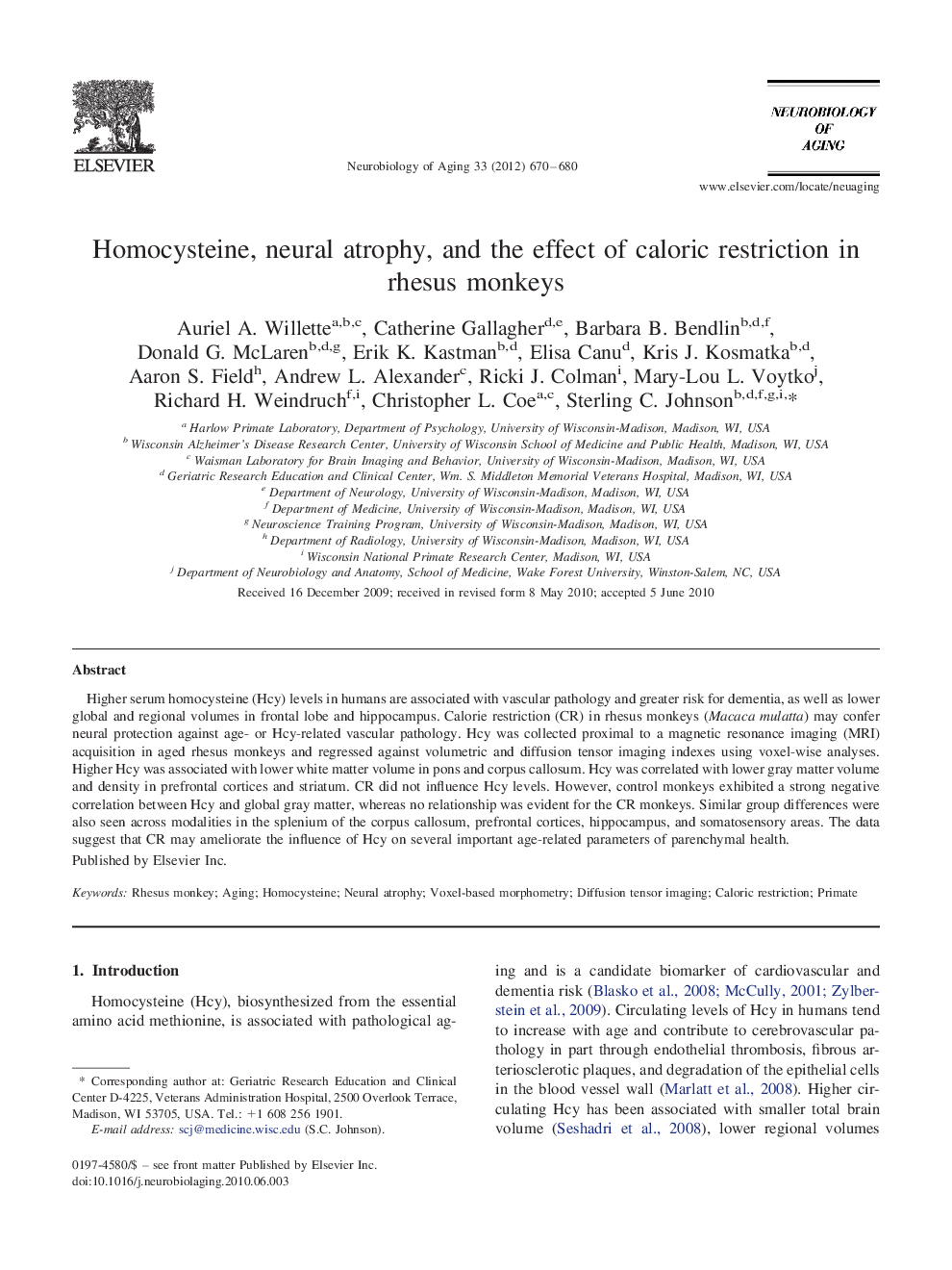| Article ID | Journal | Published Year | Pages | File Type |
|---|---|---|---|---|
| 6809313 | Neurobiology of Aging | 2012 | 11 Pages |
Abstract
Higher serum homocysteine (Hcy) levels in humans are associated with vascular pathology and greater risk for dementia, as well as lower global and regional volumes in frontal lobe and hippocampus. Calorie restriction (CR) in rhesus monkeys (Macaca mulatta) may confer neural protection against age- or Hcy-related vascular pathology. Hcy was collected proximal to a magnetic resonance imaging (MRI) acquisition in aged rhesus monkeys and regressed against volumetric and diffusion tensor imaging indexes using voxel-wise analyses. Higher Hcy was associated with lower white matter volume in pons and corpus callosum. Hcy was correlated with lower gray matter volume and density in prefrontal cortices and striatum. CR did not influence Hcy levels. However, control monkeys exhibited a strong negative correlation between Hcy and global gray matter, whereas no relationship was evident for the CR monkeys. Similar group differences were also seen across modalities in the splenium of the corpus callosum, prefrontal cortices, hippocampus, and somatosensory areas. The data suggest that CR may ameliorate the influence of Hcy on several important age-related parameters of parenchymal health.
Keywords
Related Topics
Life Sciences
Biochemistry, Genetics and Molecular Biology
Ageing
Authors
Auriel A. Willette, Catherine Gallagher, Barbara B. Bendlin, Donald G. McLaren, Erik K. Kastman, Elisa Canu, Kris J. Kosmatka, Aaron S. Field, Andrew L. Alexander, Ricki J. Colman, Mary-Lou L. Voytko, Richard H. Weindruch, Christopher L. Coe,
